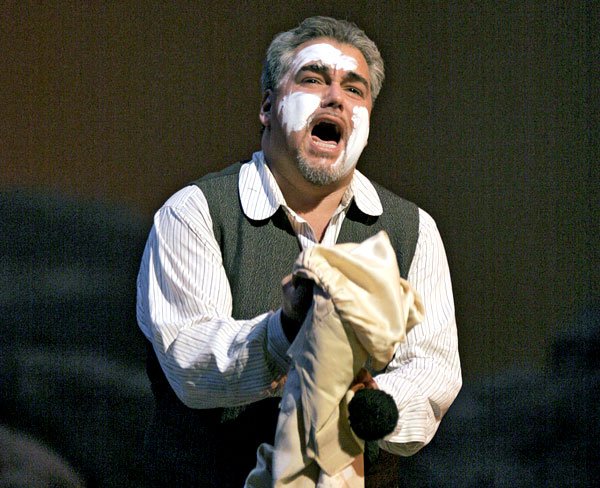1. Interpretation
It has been called interpretation to the execution of a musical work, not only in terms of its formal materialization but the observance of all the guidelines that contribute to give sound reality to the thought and spirit of the author. The score is just an inanimate guide that reflects a much more complex creative idea. However, we can find in the score the keys that will bring us closer to the mind of the composer. Among these keys are:
a) Musical symbols that modify the dynamics, introduce ornaments, etc.
b) Terms, usually in Italian, indicators of character nuances.
c) The music itself, with its structure of phrases and motives.
d) The text that the composer has chosen.
According to the work in question, sometimes the music goes in the same direction as the sung text, describing the idea that animates it, completing it or placing it in a certain atmosphere. Sometimes it establishes a contrast, even a total opposition, because it simultaneously communicates a dramatic contextual idea.

2. Internal Dramatization
Even when it is not music written for a character in an opera or musical theater piece, the singer is always a spokesperson for the feelings, ideas and motivations of someone other than himself: the poet who wrote the text or the one to whom it represents , or the composer himself. So whoever sings is always representing a real or imaginary person, human or archetypal. The singer has, therefore, to empathize with the text and the way the music recreates, highlights, supports or contradicts that text.
The singers, whether sing alone or in chorus, should not be limited to the isolated musical aspects of a work, but should go into poetic meanings, fully reflect a union between music and poetry, which is the first thing that singing, as art, pursue.

3. Basic instructions to keep in mind when approaching a musical work
a) Author, title, work. The name of the author can, by itself, refer the interpreter to the historical period in which he lived and to the musical period to which he belongs. This leads to stylistic considerations. Each musical period exhibits a particular aesthetic and the interpretation of each author leads to consider specific aesthetic patterns that, often, are part not only of a musical period but of a very extensive and defined artistic lapse within history. The study and the investigation of these aesthetic particularities will allow to approach each author with property.
The title of the work or musical fragment exposes its thematic content and gives us certain data. We will know, thus, the intention of the author with respect to the work, and what will be its dramatic-musical content. The title can provide the interpreter with the general atmosphere of the work, in order to give an interpretation according to the emotion that the author wishes to show in the work.
b) The text. It contains the general idea that you want to communicate. It is what differentiates singing from other musical disciplines since the singer must transmit the message to the listener in its two simultaneous aspects: melody and text.
Another aspect is the one referred to the content. The singer must convey to the public what the text, the composer and he himself want to communicate. For this you must fully know the emotional, descriptive or representative features that all text contains. The singing is, basically, an internal dramatization. It is the expression of processes, sometimes conflicting, that are lived internally. The listener captures, in greater depth, the effect that a musically backed text leaves on the interpreters. If the text is in a language other than your own, its translation, word by word, is the first step to understanding it. To all this we must add that the phonetic device responds in a much more fluid way when the mental image of what it wants to sing is perfectly clear. The meaning of the text and its particular phonetic sounds are, of course, an indispensable part of that image.
.jpg)
Thanks for the read. Interesting look into the mind of a singer!
Discord.
Follow our curation trail (classical-radio) at SteemAuto
The classical music community at #classical-music and Follow our community accounts @classical-music and @classical-radio.
thanks for the invitation
Great read! As a singer myself, my goal is to create the closest interpretation that the composer intended and to do my best to portray that.
Listening to an interview of Callas inspired me to put this kind of dedication into my singing.
thank you for your words ... I would like to hear you sing
Here’s one of my pieces I just posted today! I hope you enjoy it.
https://steemit.com/dsound/@shemell/20180321t163159978z-why-zachem-tchaikovsky
Congratulations @luiscornieles! You have completed the following achievement on Steemit and have been rewarded with new badge(s) :
Click on the badge to view your Board of Honor.
If you no longer want to receive notifications, reply to this comment with the word
STOPCongratulations @luiscornieles! You received a personal award!
Click here to view your Board
Do not miss the last post from @steemitboard:
Vote for @Steemitboard as a witness and get one more award and increased upvotes!
Congratulations @luiscornieles! You received a personal award!
You can view your badges on your Steem Board and compare to others on the Steem Ranking
Do not miss the last post from @steemitboard:
Vote for @Steemitboard as a witness to get one more award and increased upvotes!